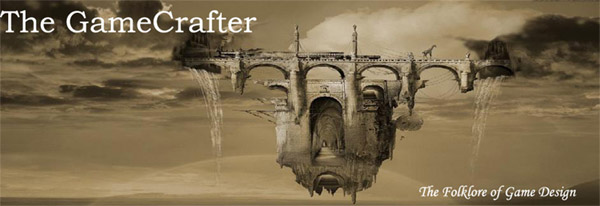It has been put forth that the main difference between man and animal, is that man is better at adapting to his environment and that man strives to make sense of his actions in some greater context other than himself. There are many studies under the heading of sociology, philosophy, and psychology that help define personal and cultural needs in the desire to understand the meaning and context of mans actions. There are more works on this subject than can fill several libraries. One important set of works are the studies by Carl Jung that despite culture, there are a handful of universal archetypes that prevail across cultural barriers that manifest themselves in literature, lore and religion. Another aspect of this puzzle rests in the fact that there are underlying needs that people have that are filled by actively or passively engaging in recreational activity of this nature.
These needs can be broken down into several distinct categories and are the same measures to determine behavior in the workplace. These needs interrelate among themselves and those activities which promote the widest breadth of these factors have the widest appeal to the consumer market.
Achievement: This axis relates to the recognition of work and awards for performance. The rewards and recognition are almost always intrinsic.
Power: This axis relates to the ability to be safe. Power is power over your environment and with that power, the ability to meet challenges that threaten safety.
Acceptance: This axis relates to the ability to socialize with other people and gain a measure of acceptance and a sense of self worth.
People learn and adapt either by their own actions or by watching others perform actions. Literature in the form of books, plays, stage, television and films offer a passive approach to gaining experience. We all watch these forms of entertainment and gain insight into how other people under interesting situations cope and deal with problems. I am not diminishing the artistic aspects of these endeavors, just brining up the underlying psychological needs that are being played upon when we engage in such activity.
Many of these forms of entertainment are social in nature, watched or consumed with a group of friends or peers together or individually. After the event, we often engage in behaviors that reinforce the perceptions from the experience. This re-living of the events are highly social in nature In western culture the social aspects of these shared experiences are widely embraced by females of our society. The social aspect of entertainment and shared activity is on the whole, generally more important to females than the power or achievement aspects.
Western Men on the other hand, are generally more interested in western culture for either the power or achievement aspects. The younger the male, the more power is of importance as the need to “Prove” oneself is a forefront of thought.
These observations should be understood to be group averages and behavior, and not necessarily applied as a hard and fast rule to a single individual. Every aspect at one time or another will play an important role for a single person. Also regardless of gender or culture, there will be people who outside of the norm. There will be young males who are more interested in the social aspects of play, and there will be females who will exhibit the need for achievement or power over the social aspects. Many of these concepts have been brought forth and discussed in minute detail by academic thought leaders in this field. Please reference http://terranova.blogs.com/. For much more detailed analysis of this topic.
Now, this has been an interesting diatribe in academic understanding. How does that translate to designs and how does it solve our problems?
In short, we play for the experience. When the experience becomes redundant, repetitive, and “Been there done that”, we lose interest. In other words killing 3rd level Rats is the same as killing 30th level Desert Rats, we cease learning. There is no “Unanswered Question” or alternative method or information to gain. However, there is a big BUT. If we have made social contacts in the virtual world, and those social contacts provide us value then we will find ways to stay with the simulation until such time as the value for the social interaction falls below the threshold of acceptance. In other words, the boredom of doing the same things over and over again exceeds the value we gain from the interaction with the social group.
I believe that we can keep the virtual world from becoming boring or redundant, and at the same time strengthen the social bonds that exist.
The question again is: How?
The first part is accomplished with a true dynamic game environment. Imagine a virtual world where what we encounter and deal with is determined in part or in whole by the actions of other players against the simulation. It changes and creates it own content as part of the simulation. It never stays the same, and morphs constantly providing new challenges and new situations. I will say now that this has already been done in test environments just to put the nay sayers who believe that the technology does not exist for this concept, at east. I will get to this in great detail in future posts.
The second part is accomplished by taking the “clan” or “Guild” ie.. the player run organization and plant it deeply into the game simulation itself. Expand this where the player run organization is part of the game. Think of this as a shared character class. Imagine a Fantasy type virtual world, where the guild created by the players have special abilities and game bonuses that are given to the players who are members. Imagine then that these abilities are purchased or created by various players based upon actions that are relevant for their individual level. For example, imagine that we accumulate “Guild Points” for lack of a better term, by fulfilling quests or defeating NPC’s (MOBS). One point for a single similar leveled character. If a character defeats a NPC of lower or greater than 2 levels, then nothing is gained. Thus a 3rd level character can generate the same amount of “Guild points” as an elite 80th level character. The contribution to the Guild to purchase and maintain it’s bonuses are the same.
Suddenly, we now have parity between the casual gamer and the hard core gamer, where they can become relevant to each other. This strengthens the bonds and social ties as everyone is now working towards a greater goal that helps everyone in the guild directly.
This also now does something very interesting. It creates a true Multi-player experience, instead of a single player experience set against a static setting with other single players.
Next post will expand upon this concept greatly.





No comments:
Post a Comment